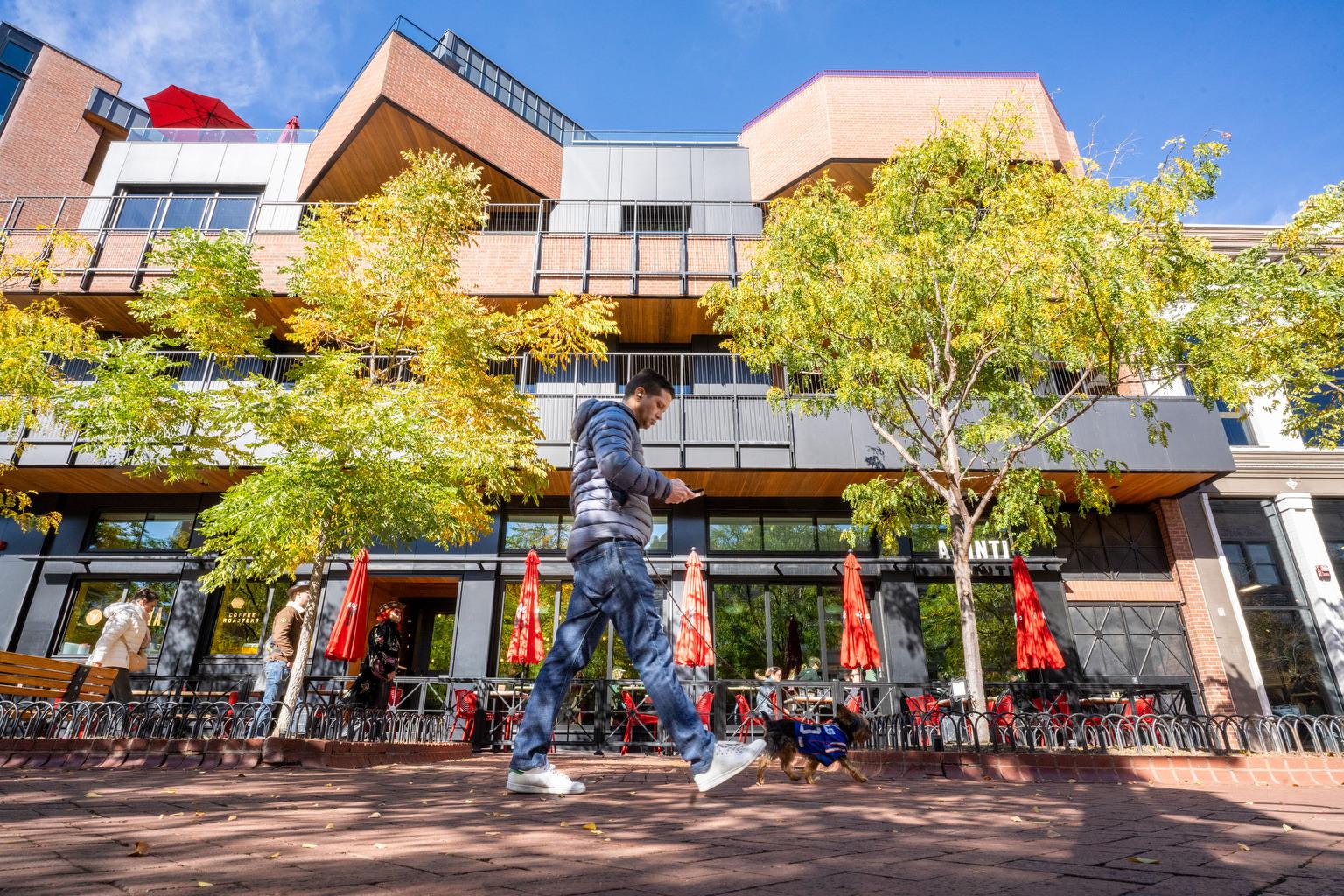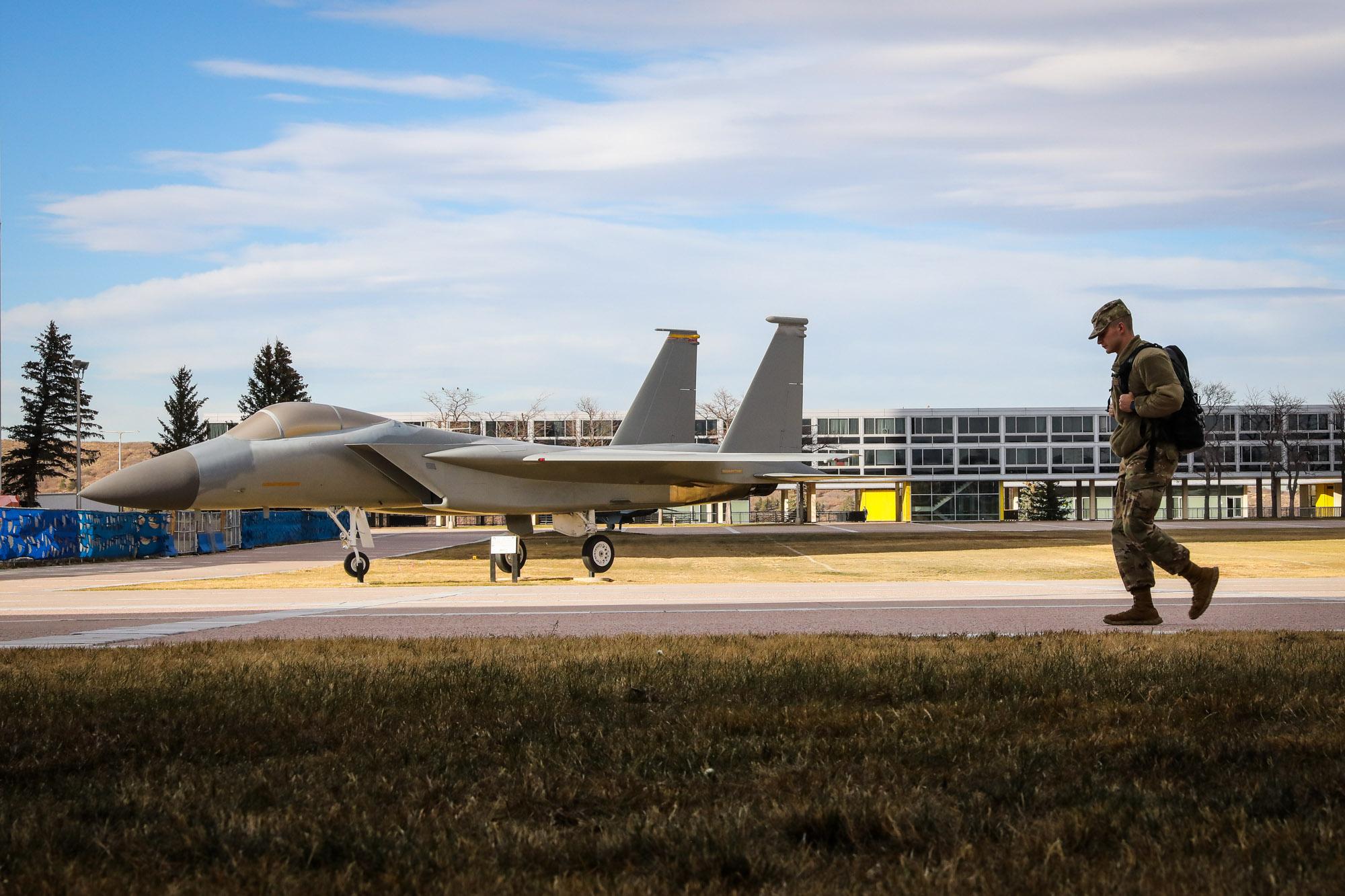
This year might have been your last chance to participate in a presidential caucus in Colorado. State lawmakers are considering switching to a primary after widespread frustration with how the process went this time around.
For Democrats, record turnout meant overcrowded precincts, with some voters facing long waits and meetings that moved outside into the frosty March night.
For Republicans, the party’s decision to drop their caucus straw poll left many members disappointed and disenchanted -- especially supporters of Donald Trump, who felt the change was made specifically to disadvantage their candidate.
“Folks are angry,” said state Rep. Dominick Moreno, D-Commerce City. “And if we want to show them we heard them, then we should do something this legislative session.”
Moreno is sponsoring a bipartisan bill to move to a presidential primary. Colorado first adopted caucuses in 1912. It did briefly switch to a primary in 1992, but returned to caucuses in 2002 as a cost-saving measure. The state pays for primaries; parties pick up the bill for caucuses.
At his bill's first hearing last week, Moreno argued the current process disenfranchises lots of voters.
“You have to be able to attend a caucus for hours on an evening. And if you couldn't find a babysitter or you had to work that evening -- sorry, you're left out,” said Moreno.
Whatever their reason, the vast majority of party members do skip the caucuses. This year’s record-breaking Democratic turnout only amounted to 13 percent of the party's active voters. Republicans did worse, with a 6 percent turnout. Proponents hope moving to a primary would boost those numbers.
Not All Are Convinced
But not everyone thinks that's a good thing.
“We don't think making decisions based on a 30-second commercial -- really important decisions -- is smart,” said Dudley Brown, head of the influential conservative group Rocky Mountain Gun Owners. He supports “having at least some barrier for entry for activity when you're talking about a party's nomination.”
RMGO successfully lobbied against a similar primary bill last year; it was voted down in committee by Senate Republicans.
The current primary bill does have a lot of powerful friends, including the leaders of the state's major political parties, the legislature's Republican and Democratic leaders, the governor, and the secretary of state.
The Libertarian Party of Colorado opposes the effort to move to a primary because of the cost to taxpayers, and concerns it could make it harder for their candidates to get on the ballot. The Green Party has not taken an official stance, but state party co-chair Bill Bartlett describes the effort as “a rushed, lazy bill” that reinforces the two-party system.
Some Republican lawmakers are also objecting to the measure’s timing, saying it's too close to the end of the legislative session to fully consider such a big policy change. Lawmakers must wrap up their work by next Wednesday.
“Why now?” asked Rep. Justin Everett, R-Littleton, at last week’s hearing. “Is government just so inefficient and we just can't get it done? It's going to take four years to get this up and running?”
But Secretary of State Wayne Williams argues election officials do indeed need a lot of warning to plan for another major election in 2020, when they’ll also be running a state-level primary in June and a general election in November.
“It takes some time to change the programming, to make sure the forms are correct. And to plan for it in the budgeting process,” said Williams.
Adding the primary is expected to cost the state of Colorado $5 million in each presidential election year.
Caucuses Will Live On Either Way
If the primary bill does pass, that doesn't mean an end to caucuses entirely. The parties would still hold similar gatherings to do things like set their platforms and pick primary candidates for state offices.
But conservative political strategist and author Laura Carno of El Paso County believes without a role in the presidential selection, the rest of the process will suffer.
“I think that the presidential piece is a lot of the impetus behind what drives people to their neighborhood precinct caucus,” said Carno.
Carno says about two-thirds of the people at her precinct caucus this year had never participated before and came out specifically because of the presidential election.
The presidential primary bill is also raising concerns for how it treats unaffiliated voters; it would let them temporarily register with a party to participate. For some, that gives outsiders too much say in the parties' candidate selection process. Others think it doesn't go far enough.
With the legislative session ending next week, there may not be enough time to work out all these concerns. But this bill isn't the last word on the subject.
An independent group is preparing two ballot measures: one to create a presidential primary, and another to open it to all voters. So the final say may rest with the voting public this fall.









